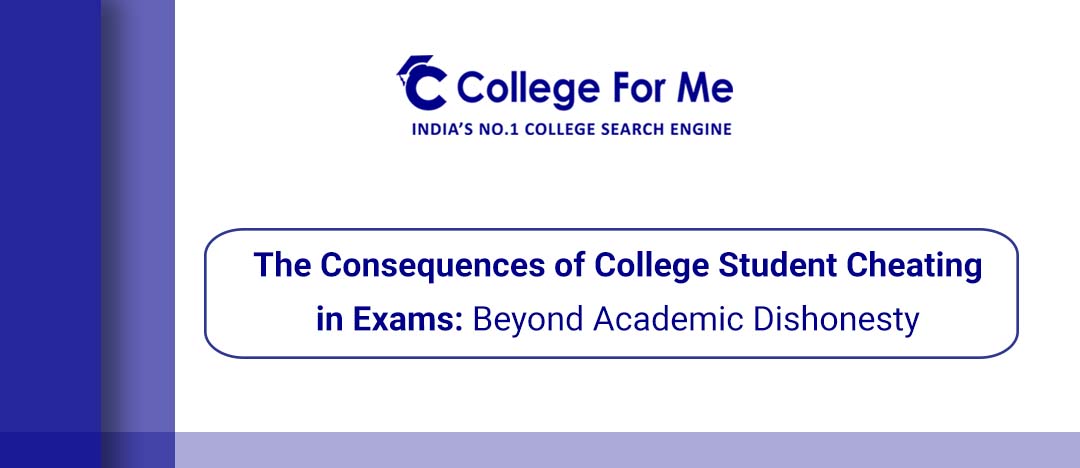Career Scopes Of A B.Tech. Student
There is a high demand for B.Tech. degree holders in the private sector, yet, there is also the opti...

Cheating in exams has long been a concern in educational institutions, and college campuses are no exception. With the pressure to excel academically and the prevalence of competitive environments, some students resort to dishonest practices to gain an unfair advantage. However, the consequences of college student cheating extend far beyond the realm of academic dishonesty.
In this article, we explore the various repercussions of cheating on exams and highlight the importance of promoting integrity and ethical behavior in higher education.
Academic and Personal Integrity
The most immediate consequence of college student cheating is compromised academic integrity. Cheating undermines the purpose of education and diminishes the value of hard work and dedication. When students resort to dishonesty, they not only jeopardize their own learning but also erode the trust and credibility of the educational institution.
Diminished Learning and Skill Development
Cheating hampers the learning process by enabling students to bypass the effort required to comprehend and apply the course material. As a result, they miss out on opportunities to develop critical thinking, problem-solving skills, and subject matter expertise. Ultimately, students who cheat may graduate with a diploma but lack the genuine knowledge and skills expected of college graduates.
Unequal Opportunities
When some students cheat, it creates an uneven playing field, disadvantageous to those who choose to remain honest and put in the hard work. This inequality can be demoralizing for students who strive to succeed through merit and dedication. Moreover, cheating can affect grading curves, leading to skewed results that do not accurately reflect individual abilities.
Ethical and Professional Implications
Cheating in college exams can have lasting ethical and professional implications. In their future careers, individuals who have resorted to dishonest practices may face challenges in upholding ethical standards and building trust with colleagues and employers. Integrity is a crucial trait in any profession and students who cheat risk compromising their future success.
Psychological Toll
Cheating can take a psychological toll on students who engage in it. Feelings of guilt, anxiety, and fear of getting caught can lead to increased stress and emotional distress. These negative emotions may further hinder academic performance and overall well-being.
Academic Consequences
When caught cheating, college students face severe academic consequences, ranging from failing the exam to expulsion from the institution. Academic penalties can have long-term effects on a student's educational and career prospects, tarnishing their academic record and limiting opportunities for further studies.
Reputation Damage
Cheating not only impacts individual students but can also harm the reputation of the entire institution. A college known for lax academic standards or widespread cheating may lose credibility and prestige, deterring potential students and employers from considering its graduates.
Legal Implications
In some cases, cheating can have legal ramifications, especially if it involves copyright infringement or fraud. Plagiarism, for instance, can lead to legal disputes and severe consequences for both the student and the educational institution.
Conclusion: Cheating in college exams is a serious issue that goes beyond academic dishonesty. The consequences of such actions can have far-reaching effects on students' integrity, learning, future careers, and overall well-being. Educational institutions must take proactive measures to prevent cheating and promote a culture of academic honesty.
By emphasizing the value of hard work, providing academic support, and encouraging open discussions about ethical behavior, colleges can foster an environment where students are motivated to succeed through merit and genuine effort. By upholding the principles of integrity, both students and educational institutions can ensure that the pursuit of knowledge remains a noble and transformative journey.

There is a high demand for B.Tech. degree holders in the private sector, yet, there is also the opti...

If you are looking for a bright and prospective career, then getting a B.Tech. in CSE must be under ...
Comments (0)